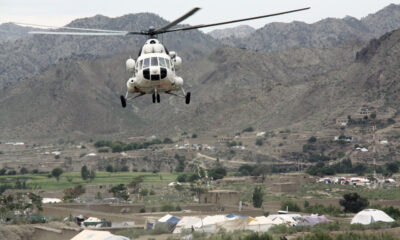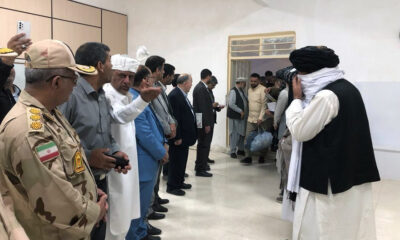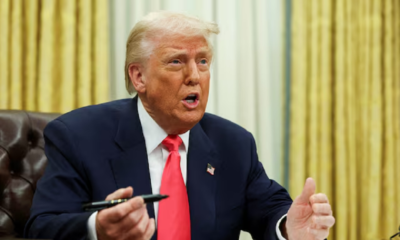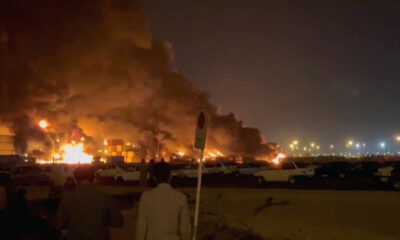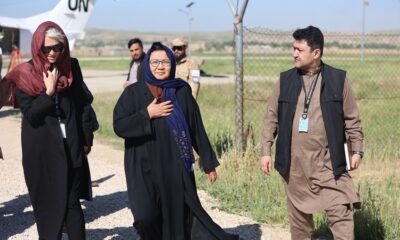Latest News
NSAs meet in Delhi for talks on Afghanistan crisis
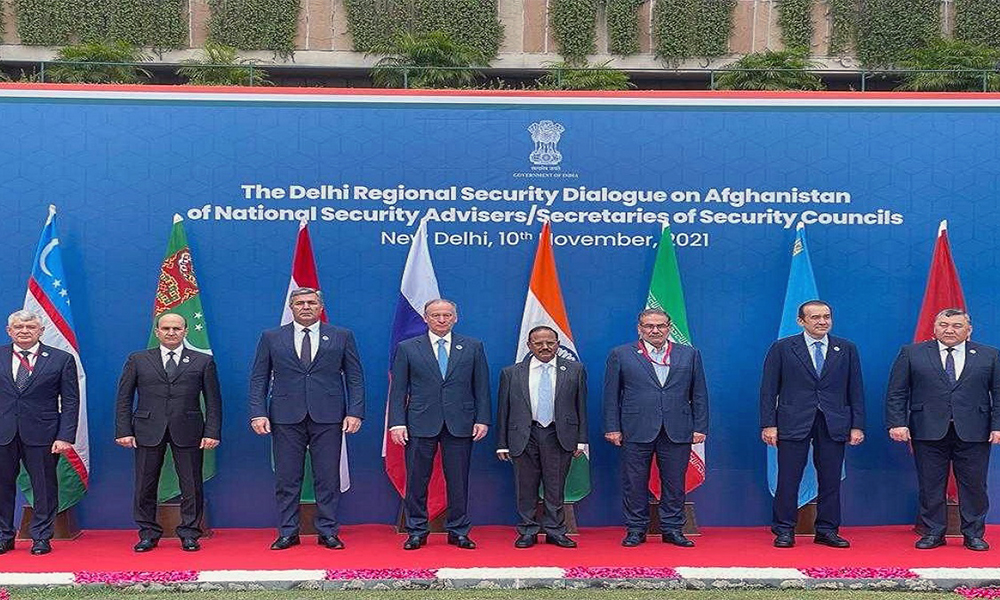
India’s NSA Ajit Doval chaired the eight-nation dialogue on the Afghanistan crisis in Delhi on Wednesday and said the recent developments in the country hold important implications for neighboring and regional countries.
In his address to his regional counterparts, Doval said: “It is a privilege for India to host this dialogue today. We have been keenly watching the developments in Afghanistan. These have important implications not only for the people of Afghanistan but also for its neighbors and the region.”
Doval also said that this is the time for close consultations amongst the participating nations and that greater cooperation and interaction is needed.
“I’m confident that our deliberations will be productive, useful, and will contribute to helping people of Afghanistan and enhance our collective security,” he said.
NSAs of Russia, Iran, Kazakhstan, Kyrgyzstan, Tajikistan, Turkmenistan and Uzbekistan are attending the high-level meeting but China and Pakistan both excused themselves.
Ali Shamkhani, Secretary of the Supreme National Security Council of Iran in turn called on the Islamic Emirate of Afghanistan (IEA) to establish an inclusive government, represented by all ethnic groups.
Turkmenistan’s Charymyrat Kakalyyevvich Amavov said that this meeting will provide the opportunity for cooperation in the region, while Uzbekistan’s Victor Makhmudov acknowledged Afghanistan is facing a crisis.
Tajikistan’s Nasrullo Rahmatjon Mahmudzoda pointed to his country’s “long border with Afghanistan” and raised concerns about cross-border drug trafficking and the humanitarian crisis.
Russia’s Nikolai Patrushev, Secretary of the Security Council of the Russian Federation called for “restoration of long-lasting peace”.
Kyrgyzstan’s Marat Mukanovich Imankulov, raised the issue of the threat of terrorism and said help needs to be extended to Afghanistan.
Kazakhstan’s Karim Massimov, Chairman of the Kazak National Security Committee raised the issue of the fast deteriorating socio-economic situation in the country.
As host, India chose not to invite the Islamic Emirate of Afghanistan (IEA), since none of the participating countries have so far officially recognized Afghanistan’s new government, although some countries, including Russia and Iran, still have an active embassy presence in the country, Indian media reports stated.
Absence of Pakistan, China
Having skipped both previous meetings because of India’s presence, Pakistan was unlikely to have attended this one, especially in light of the current state of bilateral relations, Indian media reported.
Although China had attended both previous meetings due to its own security concerns originating from Afghanistan, its absence now sends out a signal that it doesn’t want to associate with any process led by India, the Indian Express reported.
According to the report Beijing has engaged with the IEA leadership, before and after the fall of Kabul, something New Delhi has watched closely, given China’s proximity to Pakistan and potential to emerge as the IEA’s new financiers.
China’s leverage at the UN Security Council is something that the IEA will be banking on, Indian media reports stated.
Latest News
WFP air services in Afghanistan may be suspended due to funding crisis
According to WFP, the organization urgently needs $10.5 million in funding to continue its relief flights in 2025.
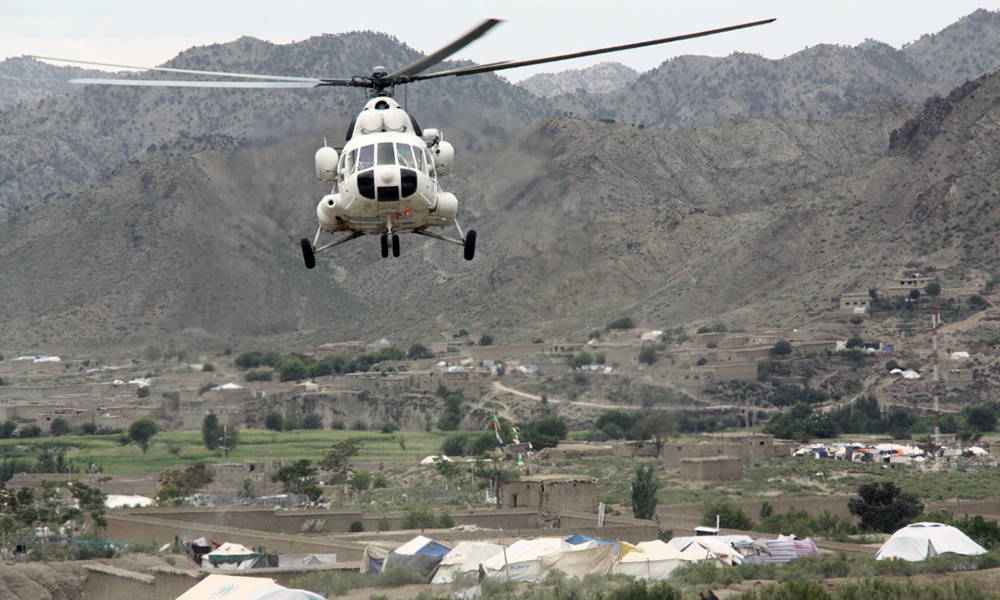
The UN’s World Food Program (WFP) in Afghanistan has announced the possible suspension of its air services in the country due to a severe shortage of funding.
WFP is one of the largest humanitarian organizations in Afghanistan and the air services have played a vital role in transporting humanitarian aid, especially to areas difficult to reach by land.
In a message posted on X, the WFP explained that in the past, when roads were blocked, air services were the only way to deliver aid to remote areas of Afghanistan. This aid included food, medicine, and other essential items that are essential for the survival of millions of people in need in Afghanistan.
According to WFP, the organization urgently needs $10.5 million in funding to continue its relief flights in 2025.
In addition, the WFP stated that humanitarian needs in Afghanistan continue to increase and millions of people across the country are dependent on humanitarian assistance.
WFP stated that if air services are stopped, it will become very difficult, if not impossible, to deliver vital aid to areas that are not accessible by road.
Latest News
Afghanistan and Iran swap prisoners at Milak border crossing
At the same time, two Iranians serving sentences in Afghan prisons were repatriated to Iran.
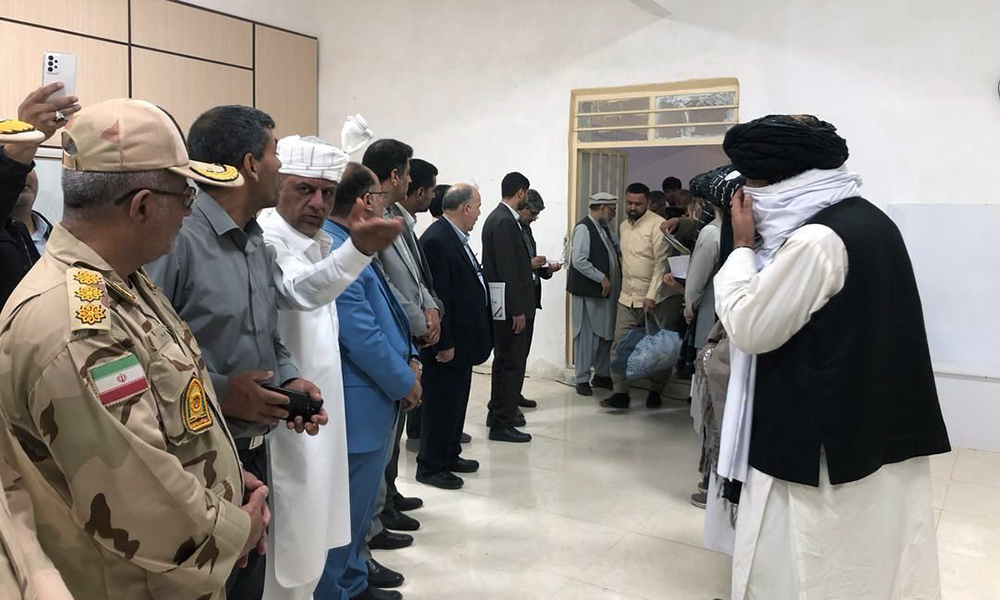
Afghanistan and Iran exchanged prisoners at the Milak border crossing in south-eastern Iran on Sunday, officials confirmed.
According to IRNA, almost 200 Afghan prisoners held in Iranian prisons in Tehran, Sistan and Baluchestan and Isfahan were handed over to Afghan authorities at the Milak border in Sistan and Baluchestan.
At the same time, two Iranians serving sentences in Afghan prisons were repatriated to Iran.
Iran’s Deputy Justice Minister for Human Rights and International Affairs, Askar Jalalian, said recently that more than 4,500 foreign nationals detained in Iran had been sent to their home countries.
Latest News
UNAMA chief visits northern Afghanistan, meets local officials including women
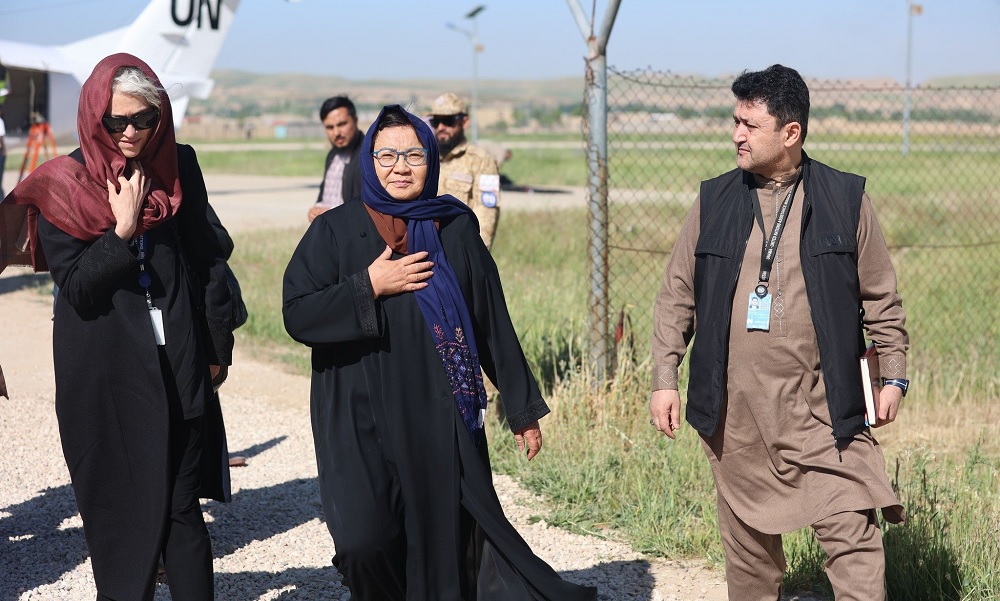
Roza Otunbayeva, Head of the United Nations Assistance Mission in Afghanistan (UNAMA), recently visited the city of Maimana in northern Afghanistan, where she met with local officials, entrepreneurs, and UN staff.
UNAMA wrote on its Facebook page on Sunday, that during the visit, entrepreneurs — including women — met with Otunbayeva, and requested support to facilitate access to new markets, particularly in Uzbekistan.
UNAMA further stated that among these entrepreneurs was a group of women who, with the support of the United Nations Development Programme (UNDP), had established a tailoring workshop.
They expressed their appreciation for the support received and spoke about the significant growth and development of their business.
UNAMA added that the organization remains committed to promoting economic opportunities and empowering Afghan communities, especially women.
-

 Sport5 days ago
Sport5 days agoSri Lanka A defeats Afghanistan A by 4 wickets in Abu Dhabi
-

 Latest News4 days ago
Latest News4 days agoAWCC activates new site in Nangarhar’s Kuz Kunar district
-

 Latest News4 days ago
Latest News4 days agoTarig Ali Bakheet and Japan’s Deputy Foreign Minister discuss Afghanistan’s situation
-

 Business4 days ago
Business4 days agoPakistan’s deputy PM discusses Trans-Afghan Railway Line project with Uzbek FM
-

 Climate Change5 days ago
Climate Change5 days agoPowerful earthquake of 6.2 magnitude shakes Istanbul
-

 Latest News5 days ago
Latest News5 days agoSpecial meeting will be held to launch Afghanistan–Russia joint commission, says Kabulov
-
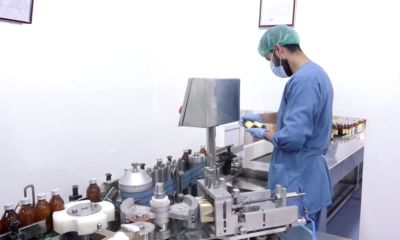
 Latest News3 days ago
Latest News3 days agoAfghanistan’s medicine output reaches 900 types: Pharma Union
-

 Latest News4 days ago
Latest News4 days agoAfghan delegation to participate in Iran’s international expo




